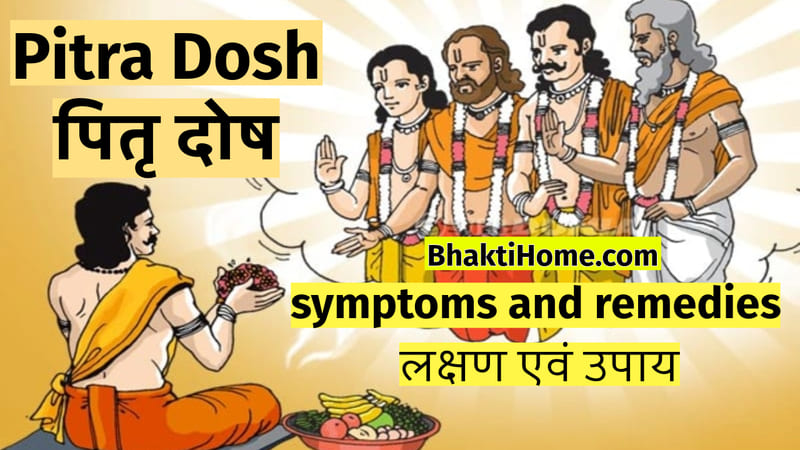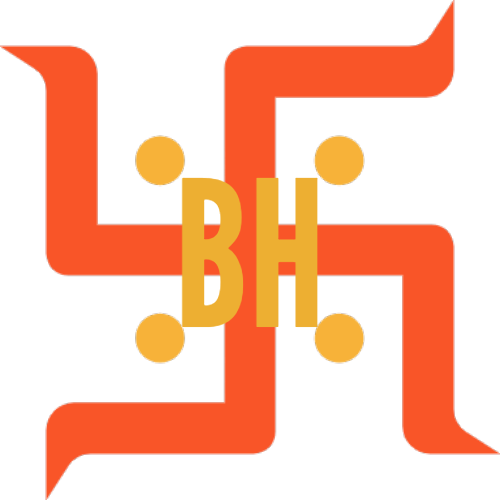
Questions About Pitra Dosh
- Is there a reason to fear Pitra Dosh?
- Is it a grave defect?
The response to these questions is a resounding "No"! Why?
There are several explanations for this. If your actions are virtuous, there's no need for apprehension or any form of rectification. However, if you find yourself on an erroneous course, it's imperative to contemplate your choices.
What is Pitra Dosh?
Broadly categorised into below categories.
- Pitra Dosh of this birth
- Pitra Dosh from Previous Birth
- Other factors
Now Lets understand each
Pitra Dosh of this birth
Pitra Dosh signifies that your forebears have certain expectations from you, or your actions may have incurred their displeasure. It can stem from unfulfilled expectations for offspring, both sons and daughters, leading to an ancestral and individual debt that remains unresolved.
Any form of suffering endured by descendants due to ancestral actions is regarded as Pitra Dosha / Pitru Dosh.
Pitra Dosh from Previous Birth
Our ancestors come in various forms, as we may be born here today and elsewhere tomorrow.
The Pitra Dosh from a previous birth manifests in the horoscope, often indicated by the conjunction of Jupiter and Rahu in one location.
When the Sun in the birth chart is afflicted by the aspect or conjunction of Saturn, Rahu-Ketu, it is regarded as an ancestral debt within the individual's horoscope.
According to Lal Kitab, having Jupiter positioned in the tenth house is considered unfavorable, and there's a partial Pitra Dosh if Jupiter resides in the seventh house.
If Rahu is situated in the ascendant, it causes an eclipse wherever the Sun is found, leading to Pitra Dosh. Similarly, if Ketu aligns with the Moon and Rahu associates with the Sun, Pitra Dosh occurs. There are numerous scenarios in which Pitrudosh can arise, as outlined in the horoscope.
Particularly, the ninth house is indicative of an individual's actions in their past life. When Venus, Mercury, or Rahu occupies the ninth house, it signifies the presence of Pitra Dosh in the horoscope.
Other factors
- One aspect is that you may be atoning for the transgressions of your forefathers, as their lineage courses through your veins.
- The second factor is physical in nature, implying that any flaws or illnesses that afflicted your father or ancestors might also affect you.
Pitra Dosh symptoms
Below are some Pitra Dosh symptoms
- Persistent sorrow or financial difficulties may be indicative of ancestral hindrances.
- Pitrudosh can lead to challenges in both worldly life and spiritual practices.
- If you sense the presence of an invisible force causing trouble, consider the possibility of ancestral obstacles.
- Those afflicted by Pitra Dosh and Pitra Debt often bring pain and sorrow to their maternal and paternal relatives, showing disregard and disdain.
- Pitrudosh is believed to impede progress, delay marriages, create obstacles in various endeavors, increase domestic discord, turn life into a struggle instead of a celebration, and hinder peace and tranquility. Symptoms may include hindrances in education, heightened anger, family illnesses, childlessness, diminished self-confidence, and more.
Pitra Dosh reasons
Below are some listed pitra doesh reasons
- The family priest or religion may have been changed by the ancestors or elders of the household.
- It's possible that a temple near the house was desecrated or a Peepal tree was felled.
- You might have committed transgressions in a past life, possibly causing harm to your own parents.
- Ancestral wrongdoings could be the reason for the suffering you're experiencing.
- Your ancestors may be displeased due to your involvement in sinful activities.
- Some individuals continually subject their parents or children to curses and mistreatment.
- You may have mistreated a cow, dog, or another innocent animal in the past.
Pitra Dosh remedies
Below are few Pitra dosh remedies that can help.
- Reduce Devdosh and Pitrudosh by burning camphor. Perform this ritual every morning and evening at home during Sandhyavandan.
- Applying a mixture of jaggery and ghee on a pot (upla) during Teras, Chaudas, Amavasya, and Purnima days can dispel negative energies and appease ancestors.
- Make it a daily practice to recite the Hanuman Chalisa.
- During Shraddha Paksha, perform essential rituals like tarpan and show reverence to your ancestors.
- Enhance the Vaastu (architectural harmony) of your home, especially by strengthening the north-east corner according to Vaastu principles.
- Improve your karma, let go of anger and alcohol, and foster love and harmony within your family.
- Eliminate feelings of hatred, discrimination, casteism, and regionalism. Cultivate respect for your father, grandfather, guru, righteous individuals, and deities.
- Collect coins in equal amounts from all family members and donate them to a temple.
- Follow the traditions and religious values of your family and country, imparting them to your child after their birth.
- Acknowledge that our lives are indebted to our ancestors, and we must repay this debt. Having a son and daughter and providing a grandson to your father and granddaughter to your mother can help alleviate Pitru Dosha.
- Additionally, we carry debts from our past lives, debts to siblings, spouse, and children. These debts can be addressed by being courteous and respectful to everyone.
- Practice acts of kindness such as feeding crows, birds, dogs, and cows, offering water to Peepal or Banyan trees, applying saffron tilak, and donating equal amounts of coins from all family members to a temple. Avoid residing in south-facing houses. Chant Lord Vishnu's mantra and recite Shrimad Bhagwat Geeta to alleviate Pitridosh. Strictly observe Ekadashi fasting. Make reciting Hanuman Chalisa a daily routine.

